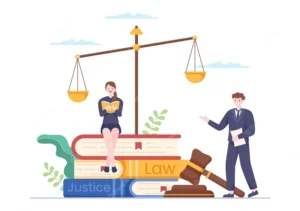Adoption Process and Legal Requirements

Adoption is a profound and life-changing decision, both for the adoptive parents and the child being adopted. It involves a complex legal process that varies from one jurisdiction to another. Understanding the adoption process and the legal requirements involved is crucial for those considering adoption. In this comprehensive guide, we will explore the steps involved in adoption and the legal aspects that prospective adoptive parents need to navigate.
Contents
The Basics of Adoption
1. What Is Adoption?
Adoption is a legal process that establishes a parent-child relationship between individuals who are not biologically related. It allows individuals or couples (the adoptive parents) to become the legal parents of a child who is not biologically their own.
2. Types of Adoption
There are various types of adoption, including:
- Domestic Adoption: Adopting a child who is a citizen or resident of the same country as the adoptive parents.
- International Adoption: Adopting a child from another country.
- Foster Care Adoption: Adopting a child who has been in the foster care system.
- Open Adoption: A form of adoption where there is ongoing contact between the birth parents, adoptive parents, and the adopted child.
- Closed Adoption: A traditional form of adoption where there is no contact between the birth parents and the adoptive family.
The Adoption Process
1. Pre-Adoption Preparation
Research: Prospective adoptive parents should thoroughly research adoption laws and agencies in their jurisdiction.
Attend Information Sessions: Many adoption agencies offer information sessions to help individuals understand the process.
Choose an Adoption Agency: Select an adoption agency, whether public or private, that aligns with your adoption goals.
2. Application and Home Study
Submit an Application: Complete the required paperwork and submit your application to the chosen adoption agency.
Home Study: Undergo a home study, which involves interviews, background checks, and home visits to assess your suitability as adoptive parents.
3. Matching Process
Waiting: Prospective adoptive parents may need to wait for a match with a child.
Placement: Once a match is found, the child is placed with the adoptive family.
4. Legal Procedures
Petition for Adoption: File a petition for adoption with the court, and attend adoption hearings.
Termination of Parental Rights: In cases where the child has living birth parents, their parental rights must be legally terminated.
5. Post-Placement Visits
Supervision: The court may require post-placement visits to ensure the well-being of the adopted child.
6. Finalization
Final Adoption Hearing: Attend the final adoption hearing, where the court grants legal parental rights to the adoptive parents.
7. Post-Adoption Services
Access Resources: Many adoption agencies offer post-adoption support, including counseling and resources for adoptive families.
Legal Requirements
1. Eligibility
Age: Prospective adoptive parents typically must be at least 18 years old, though age requirements can vary by jurisdiction.
Marital Status: Some jurisdictions have specific requirements for married, single, or divorced adoptive parents.
2. Home Study
Background Checks: All members of the adoptive household usually undergo background checks.
Financial Stability: Prospective adoptive parents must demonstrate financial stability.
3. Consent and Termination of Parental Rights
Consent: Birth parents or legal guardians must typically provide their consent for adoption.
Termination of Parental Rights: In cases where consent is not given or is not applicable, the court may terminate parental rights.
4. Interstate Adoption
Interstate Compact: When adopting across state lines, compliance with the Interstate Compact on the Placement of Children (ICPC) is necessary.
5. Post-Placement Visits and Reports
Supervision: Completing post-placement visits and reports as required by the court and adoption agency.
6. Finalization
Court Approval: Obtaining a court order or decree of adoption finalizing the adoption.
International Adoption
1. Immigration and Visa Requirements
Immigration Process: Prospective adoptive parents must navigate the immigration process to bring the child into their home country.
2. Hague Convention
Hague Convention Compliance: Compliance with the Hague Convention on Protection of Children and Co-operation in Respect of Intercountry Adoption if applicable.
Conclusion
Adoption is a life-altering process that offers children the opportunity for a loving, stable family environment while providing individuals or couples the chance to become parents. It’s essential to understand the adoption process and the legal requirements involved. Prospective adoptive parents should seek legal counsel and work with reputable adoption agencies to navigate the complexities of adoption. Every adoption journey is unique, and by following the legal guidelines and requirements, families can experience the joy of welcoming a new member into their lives through adoption.









